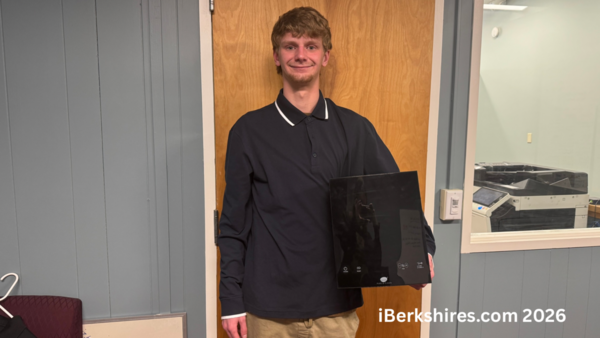
Protect Your Eyes During the Solar Eclipse
Many people are eagerly awaiting the rare total solar eclipse that will take place on April 8, when the moon will completely block the sun. Starting around 2 pm and lasting for about one hour, the daytime skies of northern Vermont and New Hampshire will slowly darken.
At Dartmouth Health, we want to make sure you keep your eyes safe while you observe the magic of the eclipse.
On April 8, a total solar eclipse will darken the daytime skies of both Northern Vermont and Northern New Hampshire. The partial eclipse should begin sometime after 2 pm in both states, depending on location. A little more than an hour later, the full eclipse will set in and last for approximately three minutes.
"It is an exciting and rare event," says Dartmouth Health ophthalmologist, Michael Zegans, MD, "but observers need to educate themselves about how to protect their eyes."
Never stare directly at the sun
A solar eclipse occurs when the moon blocks any part of the sun from view. The "totality" phase—or the full solar eclipse—means the moon is entirely blocking the sun. This year, the full solar eclipse can be observed from areas of Northern Vermont and Northern New Hampshire, as well as from other select locations in the United States.
To find the exact path of the eclipse, you can go to Xavier Jubier's Google Map. Note that times displayed in the map are in UT (Universal Time), which is five hours ahead of EST (Eastern Standard Time).
The event should be a breathtaking sight, but no matter where you are, ophthalmologists warn that it is never safe to stare directly at the sun. "Prolonged sun gazing can result in permanent retinal injury," says Zegans.
What is safe
Eclipse glasses or a solar filter must be used when viewing the eclipse. Zegans recommends following an expert protocol for viewing, such as the one posted on the American Academy of Ophthalmology website. Their recommendations include:
- Carefully look at your solar filter or eclipse glasses before using them. If you see any scratches or damage, do not use them.
- Always read and follow all directions that come with the solar filter or eclipse glasses. Help children to be sure they use handheld solar viewers and eclipse glasses correctly.
- Before looking up at the bright sun, stand still and cover your eyes with your eclipse glasses or solar viewer. After glancing at the sun, turn away and remove your glasses or viewer—do not remove them while looking at the sun.
Some experts suggest that you can look at the sun without a solar viewer, but only during the total eclipse, when the moon completely covers the sun. As soon as the sun even partially appears, immediately return to using your solar viewer. The American Academy of Ophthalmology also warns to never look at the uneclipsed or partially eclipsed sun through an unfiltered camera, telescope, binoculars, or other device, even if you are wearing eclipse glasses or holding a solar viewer at the same time. The intense solar rays coming through these devices will damage your eyes.
Where to go for protective eyewear
The American Astronomical Society contains information on eclipse glasses or handheld solar viewers. It provides this link where you can purchase protective eyewear.
Concludes Zegans: "It is very important to protect your eyes. We cannot stress that enough. But if you take the correct precautions, you, too, can enjoy this once-in-a-generation event."
For additional information on the eclipse in New Hampshire or Vermont, go to the New Hampshire Live Free website's NH Total Solar Eclipse 2024 or Vermont.gov's page.
At Dartmouth Health, we want to make sure you keep your eyes safe while you observe the magic of the eclipse. Southwestern Vermont Medical Center.

Tags: svhc, SVMC,















